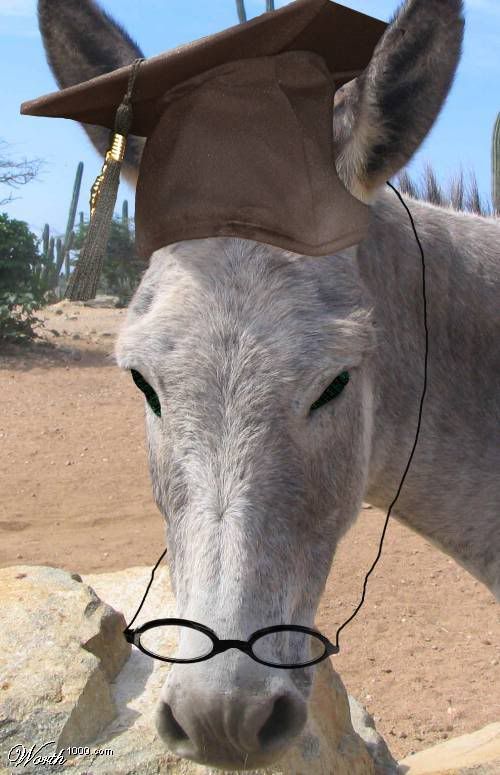
Friday, January 30, 2009
Thursday, January 29, 2009
Monday, January 12, 2009
Friday, January 2, 2009
This Atheist is Having a Crisis of Faith
A question I have is what are the assumptions we make when creating our view of the world? Every philosophy has a set of preconditions (in logic these would be axioms). This is where issues like cogito ergo sum arise--what exactly are the assumptions we are making? A precondition of Christianity is a belief in God. A precondition of atheists is credence to science. If all that exists is our own consciousness and there is no world, how could evolution and all of science be correct--they would just be constructs of our mind. Atheists make the claim that what they observe is real. Christians simply claim to observe one thing atheists don't--the existence of god. What's the difference between the philosophies?
Deists claim that they feel the presence of a god. They also claim that they can feel it with a certain degree of consistence. If they pray, they feel god's presence. If they live holy lives, they feel god smiling on them. If they have a crisis of faith, they are losing the quality that lets them observe God. If you were to assume there is a god, it clearly follows that he could choose to be observable by certain people for certain reasons. Furthermore, it is clear that it could be possible for people who can communicate with God to teach others how to communicate with Him as well (such as their children or the subjects of their missionary endeavors).
Atheists claim that science is valid because it is the result of what we observe. However not all of this observation happens naturally. If you are trying to teach someone how circuits work, you have to teach them how to use something like an ohmmeter, ammeter, or voltmeter. If they closed their minds to you and refused to learn how to use such a device, how could they ever observe current, amperage, or resistance. It seems like a shaky line between giving yourself the tools to observe science and the faith to observe a god.
The two objections to this that I see are:
Is science or observation actually a precondition of atheism? Or does atheism have no precondition? I think many atheists might initially say there is no precondition, but I'd say that's in direct conflict with how they live their lives. Most atheists think they have a purpose (mostly evolutionarily, but maybe even just to increase their happiness or the quality of their lives), so there seems to be a precondition of some sort.
The other is that, with science, you can show people the results of your theories (they don't have to observe current, resistance, and voltage in order to observe a computer working), but they could simply argue the computer's functionality is due to God. The counter-argument to that is the clear reproducibility of scientific theories whereas talking to God doesn't yield as consistent results. However it's easy to argue that God created the reproducibility of science, and that talking to God is like talking to a person--you can say the same thing to them 10 days in a row, but their response will absolutely differ each day.
It's because of issues like this that I am growing increasingly reluctant to call religious people wrong.
Deists claim that they feel the presence of a god. They also claim that they can feel it with a certain degree of consistence. If they pray, they feel god's presence. If they live holy lives, they feel god smiling on them. If they have a crisis of faith, they are losing the quality that lets them observe God. If you were to assume there is a god, it clearly follows that he could choose to be observable by certain people for certain reasons. Furthermore, it is clear that it could be possible for people who can communicate with God to teach others how to communicate with Him as well (such as their children or the subjects of their missionary endeavors).
Atheists claim that science is valid because it is the result of what we observe. However not all of this observation happens naturally. If you are trying to teach someone how circuits work, you have to teach them how to use something like an ohmmeter, ammeter, or voltmeter. If they closed their minds to you and refused to learn how to use such a device, how could they ever observe current, amperage, or resistance. It seems like a shaky line between giving yourself the tools to observe science and the faith to observe a god.
The two objections to this that I see are:
Is science or observation actually a precondition of atheism? Or does atheism have no precondition? I think many atheists might initially say there is no precondition, but I'd say that's in direct conflict with how they live their lives. Most atheists think they have a purpose (mostly evolutionarily, but maybe even just to increase their happiness or the quality of their lives), so there seems to be a precondition of some sort.
The other is that, with science, you can show people the results of your theories (they don't have to observe current, resistance, and voltage in order to observe a computer working), but they could simply argue the computer's functionality is due to God. The counter-argument to that is the clear reproducibility of scientific theories whereas talking to God doesn't yield as consistent results. However it's easy to argue that God created the reproducibility of science, and that talking to God is like talking to a person--you can say the same thing to them 10 days in a row, but their response will absolutely differ each day.
It's because of issues like this that I am growing increasingly reluctant to call religious people wrong.
Subscribe to:
Posts (Atom)

